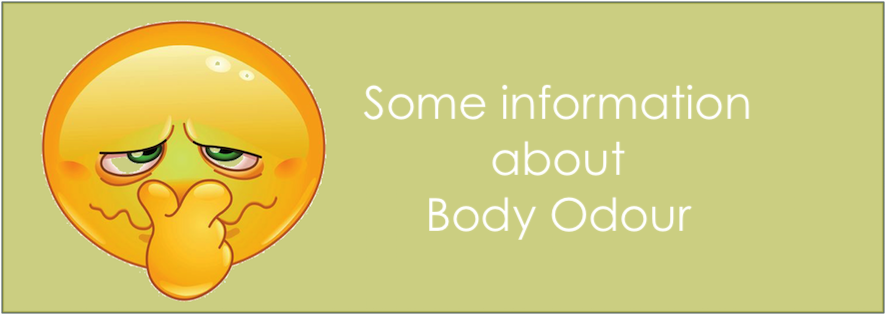Todays post is about body odour.
I have previously written about sweating and how important this bodily function is. This time I thought I would look at why some people smell more than others.
With the warm, humid weather we have here in Queensland, many of us has experienced a person in a public space who is a bit ‘on the nose’. The time of day is not necessarily a factor.
Some people naturally sweat more or less than other people. Body odour also can vary from person to person. Sweating and body odour are common when we exercise or the body gets too warm. They’re also common reactions that occur when a person is feeling nervous, anxious or stressed.
There are many different factors that can contribute to body odour.
So what creates the odour ?
Sweating and body odour are caused by sweat glands in your body. The sweat glands are used to regulate temperature and remove waste. They do this by secreting water, sodium salts, and nitrogenous waste (such as urea) onto the skin surface. This fluid is odourless until it combines with bacteria on the surface of the skin.
The formation of body odour is caused by several factors such as diet, gender, health, and medications. However, the major contribution comes from bacterial activity on the skin.
The types of bacterial flora living on the skin surface influence the resulting smell.
Skin bacteria
Our skin is home to millions of microorganisms such as bacteria, fungi and viruses that compose the skin microbiome. After the gut, there are more microorganisms on the skin than anywhere else in the body.
As the largest organ of the human body, the skin is colonised by beneficial microorganisms. It serves as a physical barrier to prevent the invasion of pathogens. In circumstances where the barrier is broken or when the balance is disturbed, skin disease or even systemic disease can result.
With increasing age, the skin microflora undergoes change. The bacteria streptococci which are found in infants disappear. The coryneform bacteria start to develop, which are mainly responsible for odour production. This is why body odour isn’t a problem for young children as it usually begins at puberty. The rising hormones called androgens that become active during puberty, contribute to the changes.
There are several common types of coryneform bacteria found on the skin.
These include Corynebacterium, Corynebacterium jeikeium and Staphylococcus hominis.
Corynebacterium manufacture enzymes that break down the oils in sweat to create smaller molecules.
Greater bacteria amounts of Corynebacterium jeikeium are found more in the armpits of men. Alternatively, greater amounts of Staphylococcus haemolyticus are found in the armpits of women.
The smaller molecules created by the bacteria are usually different types of acids. These acids produce different odours.
What to do about it?
Regular thorough washing of the skin with a wet washcloth and soap, especially those areas prone to sweating, can help prevent body odour. The most commonly used approach is antiperspirants and deodorants.
An antiperspirant is designed to block and stop the sweating, whereas a deodorant is designed to neutralise to odour.
However, using antiperspirant and deodorant completely rearranges the microbial ecosystem of the skin. At this stage scientists do not really know what effect, if any, that has on our skin and on our health.
I hope you found this information interesting,
Till the next post
Live clean n Prosper
(Sources – Dermnet NZ, US National Library of Medicine, Science Daily.


